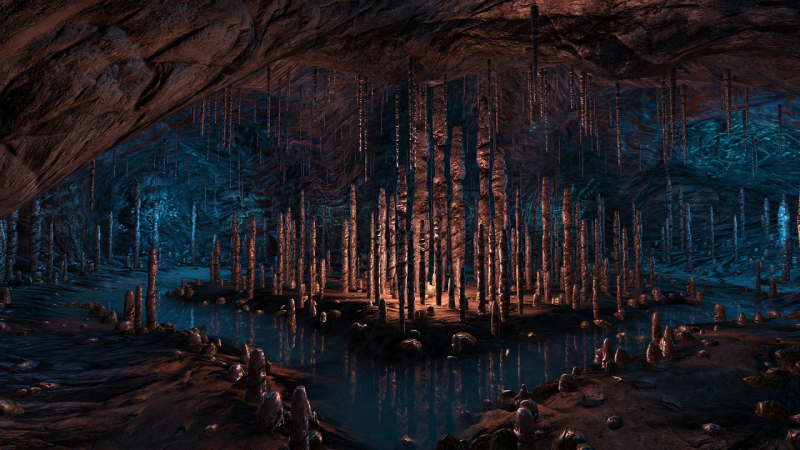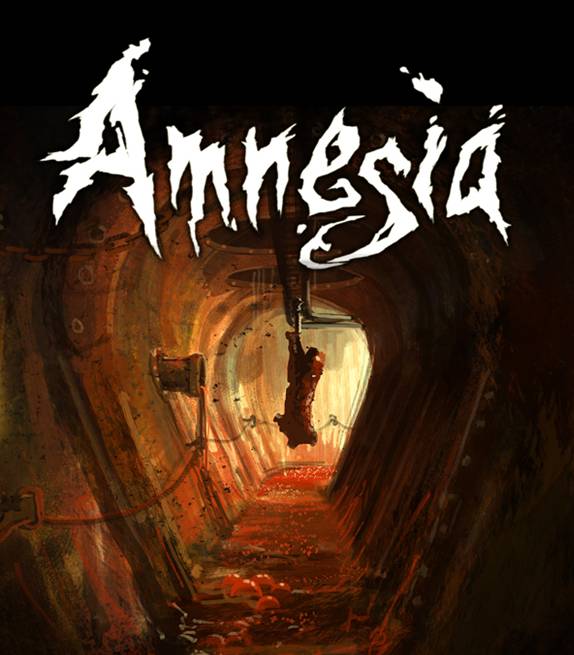
In 2010, many gamers believed that the horror genre was dying. Resident Evil, one of the few acclaimed survival horror franchises had under gone a total revamp to make it more like an action game. Others, like the Silent Hill series, simply weren’t scary any more.
Out comes Amnesia: The Dark Descent, a game developed by Frictional Games, who already garnered accolades for their work on the Penumbra series. Amnesia: The Dark Descent presented players with a spooky atmosphere, chilling moments and simple yet effective gameplay mechanics.
After recieving critical and commercial acclaim, Frictional Games have now passed on the responsibility of developing the next chapter in the franchise, Amnesia: A Machine for Pigs , to thechineseroom.
We got in touch with Dan Pinchbeck, Creative Director on Amnesia: A Machine for Pigs and asked him about development progress, gameplay details, his thoughts on the next generation consoles and much more.
Check out the full interview below.
Ravi Sinha: Originally, Amnesia: A Machine for Pigs was supposed to be an experimental title but set in the Amnesia universe. What did you see in the game that took it from that stage to being the next game?
Dan Pinchbeck: It’s still set in the same universe as Dark Descent, it was more about the length and complexity of the game that shifted. Originally, we were looking at a really short development cycle, reusing a lot of TDD props and things, more like Justine. But we started off, and wrote the story and kind of looked at what we were doing and it was obvious it needed more time and it would naturally be this bigger, more complicated thing. Which of course meant we could through much more at it in terms of art, audio, etc.
Ravi Sinha: The Dark Descent features tons of psychological horror, relying less on jump scares and more on the atmosphere of dread. Will A Machine for Pigs follow that formula, or put in a few twists of its own?
Dan Pinchbeck: Absolutely, you don’t change a winning formula, and it’s that focus on atmosphere that made us big fans of Dark Descent in the first place. The challenge has been looking to extend that, do some new things for existing fans, keep it fresh and new. But yeah, making sure it still is very much an Amnesia game is really important to us.
Amnesia: The Dark Descent Trailer.
Ravi Sinha: Tell us a bit about the influences behind A Machine for Pigs. Were there any particular horror properties – be it books, paintings, movies and such – when developing the game?
Dan Pinchbeck: I’m a big Steampunk fan, and that was probably the biggest influence. So novels like G W Dahlquist’s Glass Books trilogy, Stephen Hunt, Mark Hodder, Lavie Tidhar alongside the usual Lovecraft fix. And Victorian London is just the most amazing, rich period to work in anyway, it supplies plenty of inspiration. Particularly, it dovetails nicely with the central preoccupation of Dark Descent, this exploration of morality and fear. We really wanted to continue to play with those themes in Machine for Pigs.
Ravi Sinha: What can you tell us about the protagonist Oswald? What is his connection to the events occurring? Will he be another victim of terror like Daniel or is there some deeper role he has to play?
Oh, I don’t want to give too much away. Oswald is very much at the centre of events, although exactly how will become clear as the game progresses. The game opens with him emerging from a terrible fever dream, with the terrifying sense that his children are in mortal danger. The rest you will have to wait and see.
Ravi Sinha: How will A Machine for Pigs tie into the original game exactly? Surely there must be some over-arching evil that links the two (*cough*The Shadow*cough*).
Dan Pinchbeck: I couldn’t possibly say. Discovering those things will be part of the fun for Dark Descent fans.
Ravi Sinha: Speaking of similarities, The Dark Descent was pretty groovy with it’s click and drag style of opening doors. Will we see similar mechanics in A Machine for Pigs? If so, what can you tell us about them?
Dan Pinchbeck: Yeah, it’s still pretty physics based, but that’s hard wired into HPL2 so it’s kind of a given. There’s no inventory this time around though, so the challenge for us has been finding cool and neat ways of keeping everything within the world, and moving objects around, etc. Thats been a lot of fun, and again, havingf a game set in this period of massive invention and crazy engineering makes that great to play with. Light will also still be really important, but we are changing things around a bit there as well to keep it fresh for existing fans.
Ravi Sinha: Can you outline the process of creating a horror title for the PC? How does it differ from, say, a horror story or film?
Dan Pinchbeck: Wow, that’s a good question. I’ve never made any other media, so I’m not entirely sure. I think games have the advantage of player agency, because you are really in the world, doing things, changing things, you are much closer to that action, so it affects you more directly. The big challenge, the thing books can do is to suggest and infer things, which is normally much scarier than actually seeing them – its why most things based around Lovecraft just fail, because it’s the ambiguity in his writing that just let’s your imagination go wild and that’s what is scary.
That’s the biggest trade off I think. You are representing stuff visually, so you have new opportunities but it’s also something you have to be careful with. And I just think games are intrinsically scarier than film. But taking into account all the possible player actions is tricky. When we first play tested, we had a player spend twenty minutes collecting all the moveable items from the far corners of a level, then stacking them up into this elaborate tower, climbing it, jumping out of the world and then saying “the game’s broken”.
Amnesia: A Machine for Pigs Trailer.
Ravi Sinha: Just how far will A Machine for Pigs go to disturb/horrify gamers? Because the basic premise of the game indicates nothing but dark days ahead.
Dan Pinchbeck: Oh, it’s pretty bleak. You have the fear that surrounds you, terrifies you while you are playing. But I hope we’ve also created something that will stick with you afterwards and still be upsetting and frightening you days later.
Ravi Sinha: What are your thoughts on the next generation of consoles such as the PlayStation 4? You guys had released The Dark Descent on the PC. Does the 8GB GDDR5 RAM and the easy to develop games for type architecture appeal to you?
Dan Pinchbeck: Well, Dark Descent was Frictional, not us, but we released Dear Esther on PC. The word on the street is that PS4 is terrific to work with, especially compared to PS3. That’s always attractive.
Ravi Sinha: The Next Xbox is rumored to blocked used games and will follow an always on policy. What are your thoughts on the same?
Dan Pinchbeck: I’m ambivalent about used games – a used game makes the developers no money, which means you are hurting developers buying them. Especially given you can pick up older games really quickly and easily on sales, where the developers actually get a cut, I think if you love games as a medium, you should be doing that wherever you can. I think blocking is not so good though, I think it’s better to work on the basis that most people are basically honest and do the right thing than to over-police it.
Always on.. Well, unless its a multi-player game there’s no reason for it, it seems like a pure marketing and DRM exercise, and I think it’s really intrusive. If I buy a game, I want to own it, so I can transfer it to any of my devices, play when I want, where I want, on or offline. It’s part of this horrible conceptual shift like iTunes where although it looks like you are buying media, actually you only really are renting access to it, and I have a pretty big problem with that.
Ravi Sinha: Will we see A Machine for Pigs on any console at all in the days to come?
Dan Pinchbeck: That’s going to be down to Frictional. It’d be nice, sure.
Ravi Sinha: The Dark Descent started this internet culture where users shared their horrifying experiences on YouTube. Do you think A Machine for Pigs will have such an impact?
Dan Pinchbeck: I really hope so! I love that side of things with Dear Esther, where there’s this big amazing community of people sharing their experiences. I think it’s an amazing part of gaming culture, so I’d certainly hope we inspire people like that.

Ravi Sinha: What are your thoughts on the Oculus Rift VR device? Surely something like this seems like the next evolution in the horror games cycle.
Dan Pinchbeck: Maybe, but I’m really shortsighted and those kind of devices, like 3D, screw with my eyesight and give me headaches, so I’m not instinctively drawn to them. I think my basic take on it is that I don’t think there’s been a case yet where 3D has made a bad film good, or a good film great. I think it’ll be the same with games.
System Shock 2 is still one of the best, most scary games ever made and it’s pretty old, the graphics are pretty dated. But the crucial thing is you just don’t care or notice. If a game, or book, or film, or whatever is well designed, and gets under your skin, that kind of stuff is really just window dressing. At least for the time being. I’m sure eventually well figure out how to make things that are super optimised for new tech, but it shouldn’t be the driving force for design.
Ravi Sinha: If you could choose one major horror sequel to develop, what would it be, and what would you do with it?
Dan Pinchbeck: STALKER. Every time. I’d love to get let loose on The Zone. I’d crank it back towards the SoC model, more emptiness, loneliness, dead spaces, dark corners, dread and anxiety. The descent into the X18 labs is still a high watermark in terror in gaming.
Special thanks to Jens from Frictional Games for making this interview possible.














